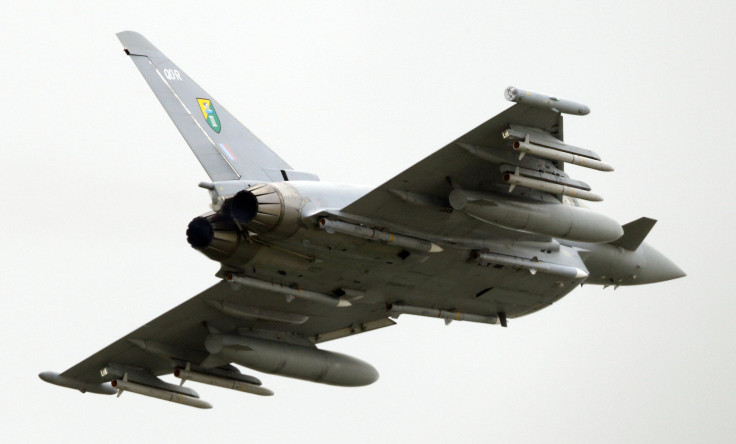NATO Typhoon Jets Scrambled To Intercept Russian Patrol Aircraft: Latvian Army

The Latvian Army said on Friday that NATO’s Typhoon fighter jets were scrambled to intercept a Russian Ilyushin Il-38 plane, a maritime patrol aircraft, over the Baltic Sea. A similar incident occurred on Tuesday when the Latvian military had to launch NATO Typhoon jests to escort a Russian Il-76 military transport plane, which was flying in neutral airspace, RIA Novosti reported.
“NATO Baltic Air Policing QRA ITA Typhoon jets on 6 FEB scrambled to intercept RU Armed Forces Il-38 over the Baltic Sea,” the Latvian Army tweeted on Friday.
Although there was no indication that the Russian planes breached the Latvian airspace, NATO has accused Moscow over the past few months of stepping up military activities in the Baltic region. The move comes amid deteriorating relations between Russia and the West over the conflict in eastern Ukraine.
Meanwhile, the Russian government has said that all patrol flights are conducted in compliance with the international law, while also claiming that allegations about its planes violating foreign airspace are meant to divert attention from the increased NATO military presence in the Baltic region, as well as along the western Russian borders, RIA Novosti reported.
Friday’s interception of the Russian plane came after the Italian Air Force announced Tuesday that its Typhoon jets deployed to Siauliai in Lithuania intercepted a Russian warplane as it threatened to penetrate NATO airspace over the Baltic sea, The Local reported, citing Italian news agency Ansa.
Last week, two Russian Bear long-range bombers that were seen flying near Britain's southern coast were intercepted by Royal Air Force Typhoon fighter jets. The suspicious movement of the Russian planes, capable of carrying nuclear missiles, prompted Britain to launch its Typhoons from the RAF bases at Lossiemouth in Scotland and Coningsby in eastern England.
Despite Moscow’s clarification that the flight of the Russian strategic bombers near the British airspace did not breach international regulations, Britain’s Foreign and Commonwealth Office later claimed that the Russian bombers caused disruptions to civil aviation.
© Copyright IBTimes 2025. All rights reserved.






















